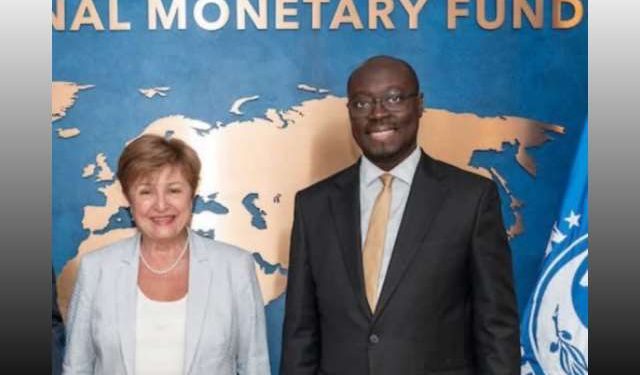Ghana Ranks 5th Among Top 10 Countries With the Highest Debt to IMF
Ghana has placed 5th among the top ten African countries with the highest debt exposure to the International Monetary Fund (IMF), according to new data published by Business Insider Africa, citing the IMF’s official database.
As of July 2025, Ghana’s debt to the Fund is estimated at $2.70 billion, positioning it behind Angola ($2.72bn), Kenya ($3.02bn), Côte d’Ivoire ($3.10bn), and Egypt, which tops the list with a substantial debt of $7.42 billion.
The data underscores the continent’s increasing dependence on IMF financing amid macroeconomic vulnerabilities, mounting debt servicing pressures, and fiscal imbalances.
In the same period, the IMF has initiated new loan disbursements to key African economies, raising further scrutiny over the sustainability of such financial lifelines. Egypt, under its $8 billion loan programme, received a disbursement of $1.2 billion in July following the successful completion of the fourth assessment, bringing its total disbursed amount to $3.5 billion.
However, the IMF has warned of rising debt stress in the North African country. Egypt’s external debt is projected to increase from $162.7 billion in the 2024/25 fiscal year to over $202 billion by 2030.
Ethiopia also secured a $262 million disbursement after passing its third programme review, although concerns persist about the country’s fragile financial position. The Ethiopian government is currently negotiating an $8.4 billion debt restructuring deal with its official creditors under the G20’s Common Framework, alongside preparations to settle a maturing $1 billion Eurobond.
According to analysts, the convergence of IMF debt and commercial obligations is beginning to exert significant pressure on national budgets, often crowding out essential infrastructure and social investments.
“IMF programmes are designed to restore macroeconomic stability, but their conditions can sometimes lead to social strain and limit fiscal autonomy,” a West African-based economist told NorvanReports.
The IMF, in an analytical note published on July 8 titled “How to Stabilize Africa’s Debt”, stressed the importance of strong institutions, prudent fiscal reforms, and growth-enhancing policies as key pillars for sustainable debt management. The Fund emphasised that countries must go beyond short-term fixes and adopt long-term frameworks that balance stability with development needs.
Senegal’s recent experience serves as a cautionary tale. Disbursements under its IMF programme have been suspended after authorities admitted to underreporting debt figures, prompting an upward revision of the debt-to-GDP ratio from 74% to over 100%. The situation triggered a downgrade by ratings agency S&P, with the IMF halting further support pending a credible recovery strategy.
These developments reflect a broader dilemma confronting African policymakers—leveraging IMF support to avert immediate crises while navigating the longer-term risks of debt dependency and diminished fiscal space.
Experts warn that without strategic debt management and investment in productive sectors, African countries risk being caught in a cycle of borrowing and repayment, thereby undermining public confidence and delaying economic recovery.
| Rank | Country | Total IMF Credit Outstanding as of 07/21/2025 |
|---|---|---|
| 1. | Egypt | 7,422,862,519 |
| 2. | Cote d’Ivoire | 3,104,687,108 |
| 3. | Kenya | 3,022,009,900 |
| 4. | Angola | 2,721,883,340 |
| 5. | Ghana | 2,707,198,500 |
| 6. | DRC | 1,952,850,000 |
| 7. | Ethiopia | 1,593,683,500 |
| 8. | Tanzania | 1,335,730,000 |
| 9. | Cameroon | 1,150,920,000 |
| 10. | Senegal | 992,936,112 |








